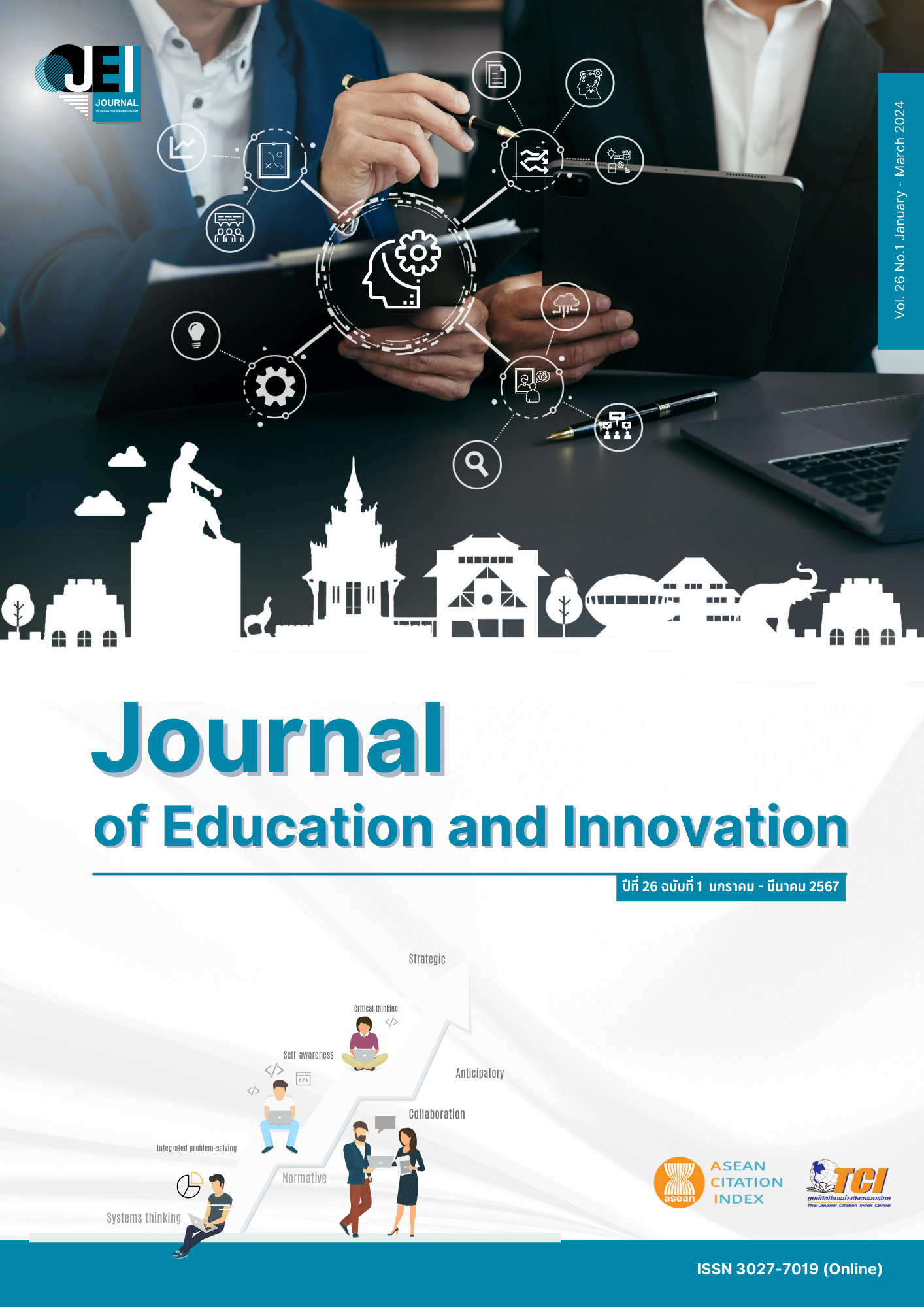DEVELOPING DESIGN - BASED LEARNING APPROACH TO PROMOTE CREATIVE THINKING ABOUT CHEMICAL REACTION RATE OF GRADE 11 STUDENTS
Main Article Content
Abstract
This action research aimed to study how design-based learning approach should be used in class to promote creative thinking of Grade 11 students. The research participants were 30 students majoring in the Science-Math program. The research tools included lesson plans, semi-structured observation protocol, student’s learning journals and artifacts. The qualitative data was analyzed using content analysis and data creditability by method triangulation. The result showed that the design-based learning approach must consist of 4 steps procedures: identifying needs, collecting information, developing prototype and evaluating respectively. The key concept of using the approach was to encourage the students’ interest by using their living situations in a challenging way and to provide them suitable rewards. These would support the creativity of the students. In addition, the research also found that the students then developed their creative thinking: Firstly, most of students developed their diversity in creative thinking, secondly they developed their evaluating and improving ideas, and lastly they developed their creative construction.
Article Details

This work is licensed under a Creative Commons Attribution-NonCommercial-NoDerivatives 4.0 International License.
The owner of the article does not copy or violate any of its copyright. If any copyright infringement occurs or prosecution, in any case, the Editorial Board is not involved in all the rights to the owner of the article to be performed.
References
Amabile, T. M. (2012). Componential Theory of Creativity. Harvard Business School. Retrieved from http://hbswk.hbs.edu/
Atchaphan, A. (2019). Effects of design-based instruction combine with online learning to learning achievement on creating website with HTML5 for grade 12. Bangkok: King Mongkut's Institute of Technology Ladkrabang.
Chanloy, S. (2021). A Development ofthe Blended Instructional Model Using Design Based Learning with SCAMPER Technique to Enhance Creative Educational Innovation Design Ability of Pre-service Teachers at Rajabhat Universities. Retrieved November 15, 2022, from https://so04.tci-thaijo.org/index.php/yru_human/article/view/251888/174213. [in Thai]
Doppelt, Y., Mehalik, M. M., Schunn, C. D., Silk, E., & Krysinski, D. (2008). Engagement and achievements: A case study of design-based learning in a science context. Journal of Technology Education, 19Z2X, 22-39.
Greenstein, L. (2012). Assessing 21st century skills: A guide to evaluating mastery and authentic learning. United States: Corwin Press.
Kemmis, S., McTaggart, R., & Nixon, R. (2014). The action research planner : doing critical participatory action research. Singapore: Springer.
Montuori, A. (2003). The Complexity of Improvisation and the Improvisation of Complexity: Social Science, Art and Creativity. Human Relations, 56(2), 237-255.
Office of the National Economic and Social Development Council. (2022). The National Economic and Social Development Plan, The thirteenth Plan (2023-2027). Retrieved March 15, 2023 form https://www.nesdc.go.th/ download/Plan13/Doc/Plan13_Final.pdf. [in Thai]
Organization for Economic Cooperation and Development. (2021). PISA 2021 Creative Thinking Framework (Third Draft). Retrieved October 12, 2021, from https://www.oecd.org/pisa/publications/PISA-2021-creative-thinking-framework.pdf
Osborne, J. F., & Patterson, A. (2011). Scientific argument and explanation: A necessary distinction. Science Education, 95(4), 627-638.
Phanmanee, A. (2014). Trained to think creatively. Bangkok: Chulalongkorn University.
Smith, J. a. L. S. (2010). Educational creativity. The Cambridge Handbook of Creativity, 13, 250-264.
Sternberg, R. a. T. L. (1995). Defying the crowd: Cultivating creativity in a culture of conformity. Retrieved November 1, 2022, from https://psycnet.apa.org/ record/1995-97404-000
Tsoukas, H. (2009). A dialogical approach to the creation of new knowledge in organizations. Organization Science, 20(6), 941-957.


